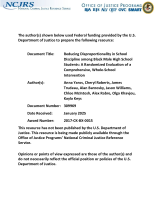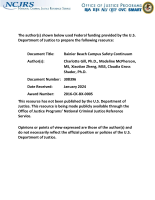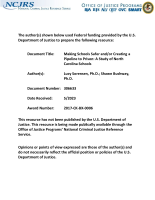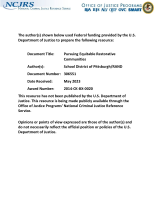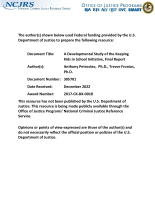Panarchy as a Framework for Exploring Racial Disparities in School Discipline
Journal
Journal of Community Practice
Date Published
December 2025
Agencies
NIJ-Sponsored
Publication Type
Research (Applied/Empirical)



